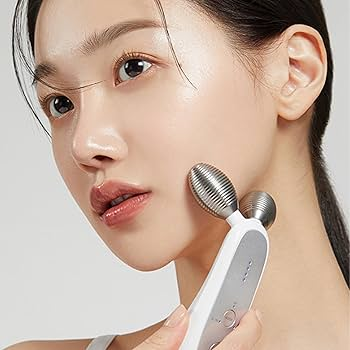Scalp Care: Drugstore Solutions for Common Hair Issues
In recent years, we’ve witnessed a surge in interest around scalp health, with viral videos showcasing advanced treatments in exotic destinations. These high-end spas offer indulgent scalp massages, water rinses, and personalized therapies—leading many to wonder if they’re missing out on something essential. The good news? You don’t have to book a flight or splurge on expensive treatments to achieve a healthier, more vibrant scalp. From dry scalps to oily buildup, dandruff to hair loss, there are effective, drugstore-friendly alternatives that can elevate your scalp care routine without breaking the bank.
Here’s a comprehensive guide to tackling common scalp issues, armed with cost-effective products and thoughtful techniques to incorporate into your daily regimen.
Dry Scalp
Restore Balance with Gentle Exfoliation
Dry scalp can be a frustrating condition, often exacerbated by environmental factors like cold weather, low humidity, or excessive washing with harsh shampoos. For some, this dryness leads to flakes, itching, and a tight, uncomfortable feeling. If standard hydrating shampoos aren’t cutting it, there’s a game-changing ingredient to add to your routine: glycolic acid.
Glycolic acid, an alpha-hydroxy acid (AHA), is one of the smallest AHAs, meaning it penetrates deeply into the scalp, gently exfoliating dead skin cells and stimulating moisture retention. This offers a dual benefit: not only will glycolic acid help hydrate your scalp, but it will also address buildup that often leads to irritation. The beauty of glycolic acid lies in its mildness. A 7% concentration won’t overwhelm sensitive skin, but it’ll provide the necessary exfoliation and moisture retention you need.
Many glycolic acid products are available in convenient applicators—think of those often seen in hair dye kits. These designs allow for precision application, helping to target specific areas of the scalp that need the most attention. Just apply, massage, and let it sit to work its magic. Though glycolic acid might not be the most mainstream drugstore product, it rivals the prices of many popular solutions, making it a highly effective (and affordable) treatment.
Oily Scalp
Use Salicylic Acid to Regulate Sebum Production
On the opposite end of the spectrum, an oily scalp can be a constant source of frustration. If you’ve ever experienced greasy, heavy hair shortly after washing, you’re likely dealing with an oily scalp. This condition can stem from various factors such as genetics, stress, environmental influences, or improper washing routines. The result is an oily residue that leaves hair feeling weighed down and occasionally accompanied by flakes. Fortunately, salicylic acid—an effective beta-hydroxy acid (BHA)—can offer much-needed relief.
Salicylic acid is oil-soluble, meaning it effectively breaks down excess sebum and helps to regulate oil production on the scalp. Available in a variety of formulations, it’s worth trying a salicylic acid shampoo, such as Neutrogena’s T Sal Scalp Therapy. This shampoo contains 2.5% to 3% salicylic acid, which is ideal for oily scalps.
For a targeted approach, try salicylic acid scalp treatments. These can be found in droppers or sprays, designed to be applied directly to the scalp for focused treatment. For example, CVS offers a 3% salicylic acid scalp relief dropper, a simple yet effective option. Similarly, the Versed and Differin sprays allow for even distribution of product over the scalp, ensuring thorough application without the need for a special brush. For extra convenience, these sprays can also be used on areas like the back or chest, where excess oil can lead to breakouts.
If you want to ensure that your treatments really penetrate, consider applying them before bed, allowing them to work overnight. For those who shower in the evening, applying salicylic acid an hour before rinsing can help to enhance its effectiveness. For added ease, you can even use a scalp massaging brush to distribute the product and enjoy a bit of relaxation while you’re at it.
Dandruff
Combat the Flakes with Antifungal Treatments
If you’re struggling with dandruff, a more serious form of scalp buildup may be at play. Dandruff often manifests as flakes that appear alongside itching, and sometimes even redness. While the condition can be caused by an oily scalp, severe dandruff is also linked to seborrheic dermatitis, an inflammatory condition exacerbated by yeast overgrowth.
To target this, antifungal treatments like ketoconazole shampoo can be a game-changer. Ketoconazole has proven benefits in fighting the yeast responsible for dandruff, and it’s effective for reducing inflammation and promoting hair health. A standout product is Nizoral, a ketoconazole-based shampoo that works wonders in addressing both dandruff and scalp inflammation. For optimal results, apply it directly to your scalp, leave it for a few minutes to allow it to work, and rinse.
It’s not just about tackling the scalp either—those pesky flakes can extend to areas like your eyebrows, nose, and the folds around your mouth. If you notice dandruff-like buildup on your face, applying ketoconazole shampoo to these areas can help reduce flare-ups. Keep in mind that this product may dry out your hair a bit, but the benefits for those suffering from dandruff far outweigh the temporary discomfort.
If you find that your scalp’s oiliness persists despite these treatments, try layering ketoconazole shampoo with a more hydrating antifungal shampoo, such as one with pyrithione zinc. Commonly found in products like Head & Shoulders, pyrithione zinc offers excellent antifungal properties and has a moisturizing effect on dry scalps. Combining these treatments with proper scalp care can create a balanced approach to addressing both dandruff and dry scalp.
Psoriasis
A Different Approach for Autoimmune Conditions
In some cases, dandruff might be mistaken for psoriasis, a chronic autoimmune condition that results in the buildup of scaly, silvery patches on the skin, including the scalp. Unlike dandruff, psoriasis requires a specialized approach. Antifungal shampoos alone won’t address psoriasis effectively, but products designed to control inflammation and promote skin regeneration are key.
Shampoos containing coal tar or salicylic acid can help to loosen scales, while corticosteroid treatments may be needed for more severe cases. It’s important to consult with a dermatologist to develop a personalized treatment plan, especially since psoriasis can sometimes lead to hair thinning or loss. Regular scalp care, combined with appropriate medical treatments, can help manage symptoms and prevent flare-ups.
The Ultimate Scalp Care Routine
A Holistic Approach
Whether you’re dealing with dry, oily, flaky, or thinning hair, a tailored scalp care routine is essential for maintaining the health and vibrancy of your hair. Beyond the specific treatments mentioned above, there are several other practices you can incorporate to optimize your routine:
Scalp Massage: Stimulate blood flow to your scalp with regular massages. This can promote hair growth and help products penetrate deeper into your scalp. Consider using a massaging brush for ease and precision, as it can also help distribute products evenly.
Avoid Overwashing: While it’s important to cleanse your scalp, overwashing can strip natural oils, leading to an imbalance. Aim to wash your hair a few times a week depending on your hair type, and avoid excessive use of harsh shampoos.
Healthy Diet and Hydration: A balanced diet rich in vitamins and minerals can promote healthy hair and scalp. Omega-3 fatty acids, zinc, and vitamin D are especially beneficial for scalp health, as is drinking plenty of water.
Consider Your Hair Care Products: Choose shampoos and conditioners suited to your specific scalp needs. Avoid harsh chemicals and opt for gentle, sulfate-free formulations that respect the scalp’s natural balance.
By integrating these strategies into your routine, you can tackle common scalp conditions without resorting to expensive treatments or invasive procedures. The drugstore offers a wealth of affordable options that, when used correctly, can deliver results comparable to professional-grade therapies. With consistency and patience, your scalp can become a healthier, more balanced foundation for your hair.


















